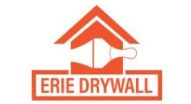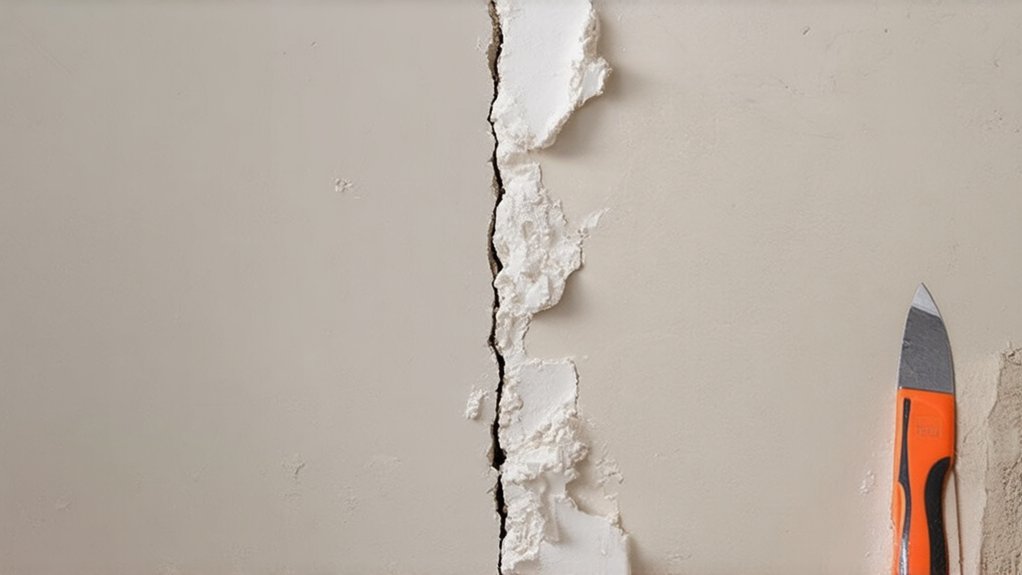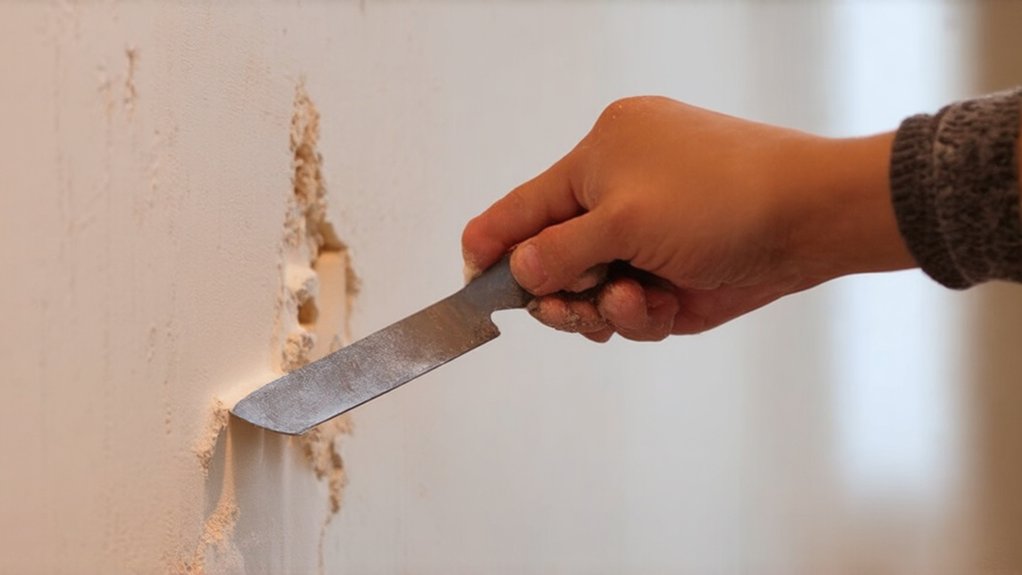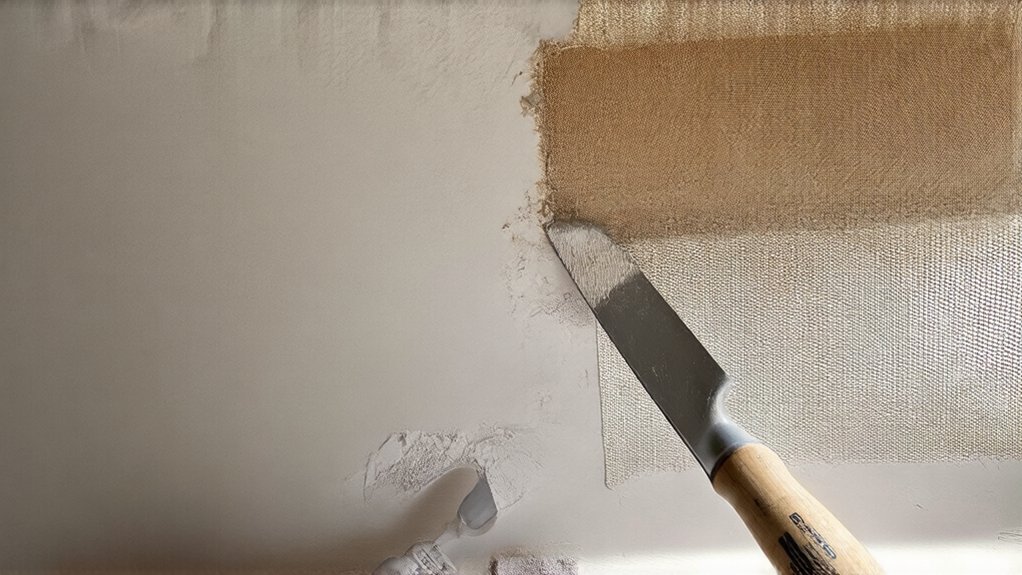When deciding between patching or replacing drywall, it's vital to assess the damage's extent. Small holes and minor cracks can typically be patched quickly and affordably, usually costing $50-$300. However, significant damage like large holes, water stains, or widespread mold requires full wall replacement, which ranges $500-$1,500. Your specific repair choice depends on damage severity, structural integrity, and budget. Want to understand the complexities behind making the right decision?
Assessing Drywall Damage: What to Look For
When drywall damage occurs, identifying the extent and type of issue is crucial for determining the appropriate repair approach. You'll want to carefully examine the affected area, checking for signs that might compromise the wall's structural integrity. Look for cracks, holes, water stains, or soft spots that could indicate moisture issues. Drywall installation experts in Erie, PA recommend consulting professionals to assess complex or extensive damage that may require specialized techniques or materials.
Small nail-sized holes or minor surface imperfections are typically easy to patch, while larger damage or extensive water-related problems might require full wall replacement. Pay close attention to the damage's size, location, and underlying causes. Understanding these details will help you make an informed decision about the most effective repair strategy.
Small Repairs: When Patching Is the Right Solution
After carefully appraising your drywall damage, you'll find that many minor imperfections can be repaired with simple patching techniques. Small holes, hairline cracks, and minor dents are perfect candidates for quick fixes that create minimal disruption interference to your living space. Drywall repair costs for these minor issues typically range from $100 to $300, making patching an economical solution.
You'll want to use spackle or joint compound for these repairs, which can restore your wall's smooth appearance without the hassle of full replacement. These targeted interventions save you time, money, and unnecessary stress, helping you maintain your home's aesthetic appeal with minimal effort and professional-looking results.
Major Damage: Signs You Need Full Wall Replacement
Some drywall damages are simply too extensive to patch, signaling the urgent need for complete wall replacement. When structural integrity issues become apparent, you'll want to take immediate action.
Large holes, significant water damage, or widespread mold can compromise your wall's strength and safety. Hidden moisture damage often lurks beneath the surface, creating potential health risks and weakening your home's foundation.
If you're seeing multiple cracks, extensive warping, or signs of severe deterioration, replacement isn't just recommended—it's essential. Professional assessment can help you determine the full extent of damage and protect your home's long-term stability.
Cost Comparison: Patching vs. Complete Wall Replacement
Homeowners contemplating drywall repair costs can quickly size up the financial implications of patching versus full wall replacement. Your cost analysis will depend on damage extent, wall size, and repair complexity.
Typically, patching small holes might run $50-$150, while minor repairs average $200-$500. Complete wall replacement, however, can range from $500 to $1,500 per wall, depending on square footage and labor rates. Budget considerations should include material costs, professional labor, and potential additional expenses like paint or texture matching.
Weigh your options carefully, balancing immediate repair needs with long-term home maintenance goals.
DIY vs. Professional Drywall Repair Techniques
Evaluating the financial implications of drywall repair naturally leads to determining whether you'll undertake the project yourself or hire a professional. DIY challenges can seem overwhelming, especially if you're not experienced with home repairs.
While patching small holes might be manageable, larger damages often require specialized skills and tools that contractors possess. Hiring professionals guarantees precise repairs, minimizes potential mistakes, and can save you time and frustration. Consider your skill level, available time, and the extent of damage when deciding.
Sometimes, investing in professional knowledge proves more cost-effective than risking a potentially imperfect DIY repair.
Preventing Future Drywall Damage: Maintenance Tips
Since drywall damage can be both costly and frustrating, proactively protecting your walls becomes a smart homeowner strategy. Moisture control is paramount in preventing structural integrity issues that lead to wall deterioration.
Regularly inspect areas near plumbing, windows, and rooflines for potential water intrusion. Use a dehumidifier in damp spaces like basements and bathrooms to minimize moisture buildup. Avoid hanging heavy items without proper wall anchors, and be mindful of potential impacts from furniture or children's activities.
Small preventative steps can save you significant repair expenses and maintain your home's appearance.
Frequently Asked Questions
Can Water Damage Always Be Fixed With a Simple Patch?
You'll want to carefully assess moisture detection and structural integrity before patching water damage. If the damage is extensive or hidden, you're better off replacing the entire drywall section to prevent long-term issues and potential mold growth.
How Long Does Drywall Repair Typically Take to Complete?
Depending on the damage's complexity, you'll find drywall repair can take anywhere from 30 minutes to a full day. Your project's estimated timeline depends on the hole's size, your skill level, and the repair technique you'll choose.
Will Insurance Cover My Drywall Damage and Repair Costs?
You'll want to check your homeowner's insurance policies carefully. Coverage limits vary, but many policies do cover drywall damage from sudden accidents or water leaks. It's best to contact your insurance agent to understand your specific protection.
What Tools Do I Need for a Basic Drywall Repair?
You'll need basic taping tools like a putty knife, drywall tape, and joint compound. Don't forget sandpaper and a texture roller for wall texture application. With these essentials, you'll tackle repairs confidently and join the DIY home improvement community.
Does Drywall Repair Affect the Home's Overall Market Value?
You'll find that well-executed drywall repairs can actually enhance your home's resale value, showing potential buyers you've maintained the property diligently. Neglected damage might lower your property's selling price, so invest in quality repairs.



